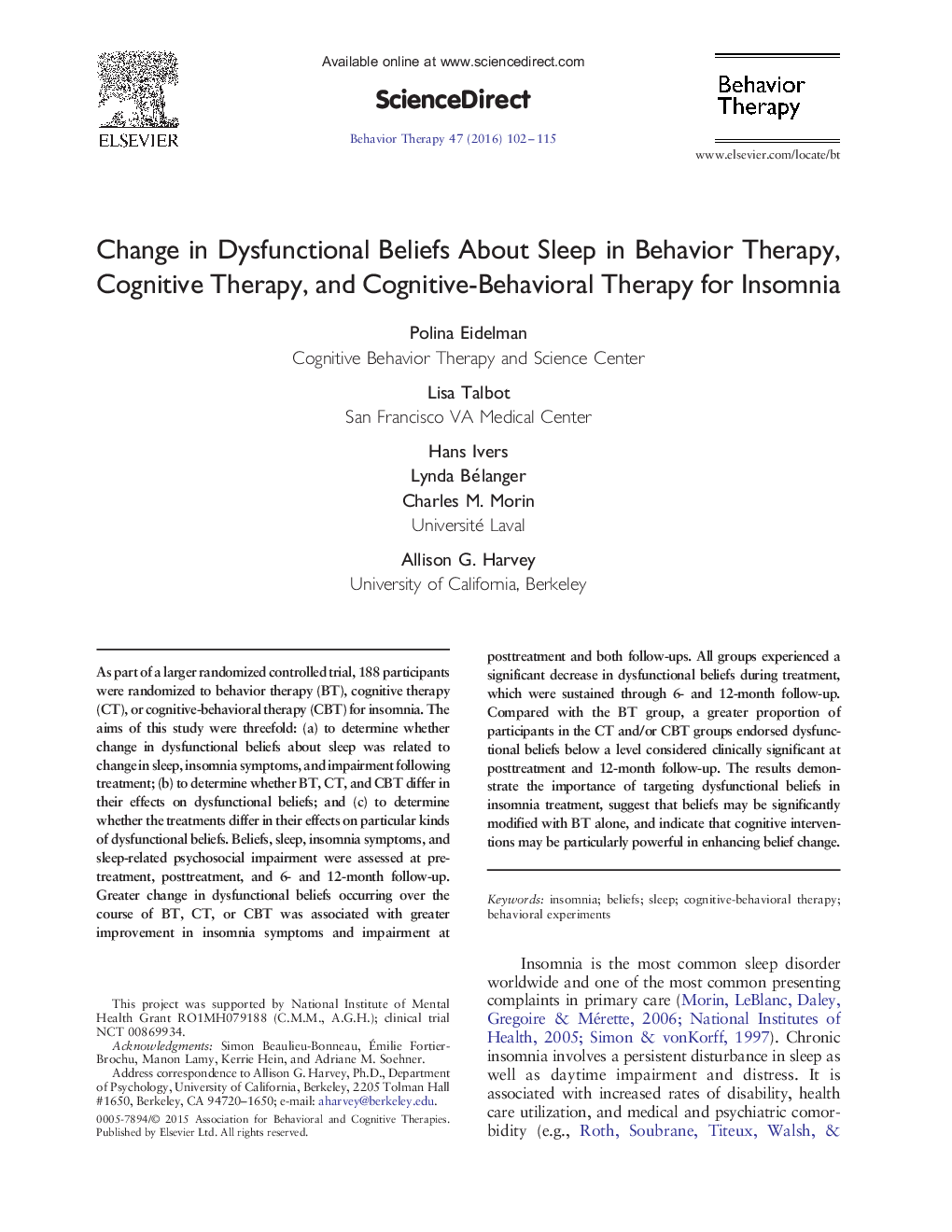ترجمه فارسی عنوان مقاله
تغییر در باورهای ناکارآمد درباره خواب درمانی درمانی، درمان شناختی، و درمان رفتاری شناختی برای بی خوابی؟
عنوان انگلیسی
Change in Dysfunctional Beliefs About Sleep in Behavior Therapy, Cognitive Therapy, and Cognitive-Behavioral Therapy for Insomnia ☆
| کد مقاله | سال انتشار | تعداد صفحات مقاله انگلیسی |
|---|---|---|
| 71803 | 2015 | 14 صفحه PDF |
منبع

Publisher : Elsevier - Science Direct (الزویر - ساینس دایرکت)
Journal : Behavior Therapy, Volume 47, Issue 1, January 2016, Pages 102–115
ترجمه کلمات کلیدی
بیخوابی، اعتقادات بخواب درمان شناختی- رفتاری، آزمایش های رفتاری
کلمات کلیدی انگلیسی
insomnia; beliefs; sleep; cognitive-behavioral therapy; behavioral experiments

